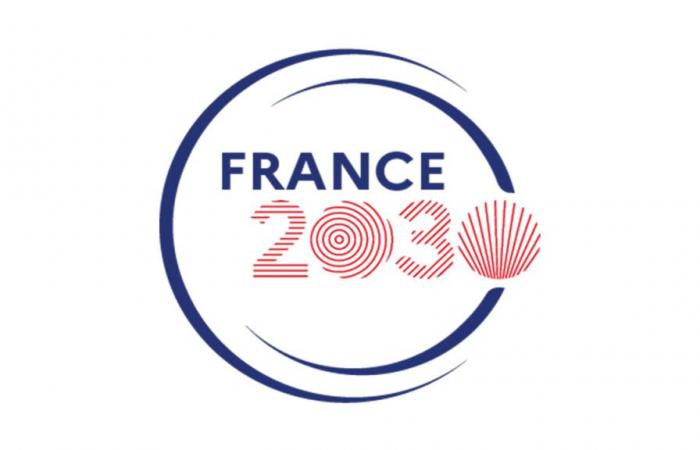
Updated on 25/11/2024
In September 2021, Emmanuel Macron launched the France 2030 program with an audacious objective: “ propel France into a European leader in technological innovation and ecological transition.” After France Relaunch, which made it possible in the midst of the COVID crisis to support investment in businesses, France 2030 had the ambition to boost innovation. To manage this new investment plan, the President of the Republic appointed Bruno Bonnell, former entrepreneur and deputy for Rhône, as head of the General Secretariat for Investment, a position he still holds today.
This program has just celebrated its three years of existence. A little obscured by the political news of the start of the school year, this anniversary nevertheless marks an important milestone. The France 2030 program is now halfway through, which is an opportunity to take stock of it.
What exactly is France 2030?
The program could be summed up in three words: ambition, objectives and means.
« Femerge area lit champawns of tomorrow, accelerate the transformation of key sectors of our economy through innovation and positioning France not only as a player, but as a leader in the world of tomorrow”summed up Emmanuel Macron, in July 2021.
The challenge is significant: to strengthen the country's industrial sovereignty, France 2030 is targeting a few sectors of the future, such as medicine, hydrogen, batteries, nuclear power and agriculture. These sectors must reinvent themselves and above all respond to the challenges of climate change. The development of green energies in particular is sought, which explains why 50% of the projects supported have a very significant impact in terms of decarbonization.
But France 2030 also aims to increase our knowledge and support fundamental research in sectors that are still little explored, such as the deep sea or space.
Finally, training is at the heart of the challenges of the France 2030 program. Indeed, how can new professions and new technologies emerge without thinking about the women and men who will be at the helm tomorrow? To support technological developments and anticipate new skills needs in the industry, the program devotes a significant part of its budget to the design of new training centers and new learning methods. Universities, major schools, and research centers receive significant funding to develop initial and continuing training in the professions of the future. The key is the creation of thousands of jobs, particularly in nuclear power, renewable energies, electric automobiles, low-carbon aircraft, bio-medicine and even digital technology.
To meet these challenges, the general secretariat for investment has a budget of 54 billion euros. But be careful, Bruno Bonnell laid down the rules: “ Find nuggets throughout the country and of all sizes » he specified during his hearing before the Senate Finance Committee on 1is March 2024. For three years, subsidies have therefore been earmarked at least 50% for VSEs, SMEs and ETIs (mid-sized companies) because it is on them that the greatest risk weighs. In addition, France 2030 must irrigate the entire national territory. The criticism formerly addressed to PIAs (investment plans for the future) according to which public funds benefited too much to large companies located in Île-de-France is no longer applicable: in 2024, the SGPI has even exceeded its objective since 60% of the winning projects are located in the region (excluding Île-de-France) and 60% were designed by SMEs, VSEs or ETIs. “ We have succeeded in our challenge of de-risking innovation in many areas” congratulated Bruno Bonnell.
Many projects winners of the France 2030 programin Calvados
With more than 70 winning projects and already 100 million euros committed, Calvados confirms its attractiveness and a strong dynamic of innovation. These winners illustrate how technological innovation profoundly transforms and improves our lifestyles and economic activities.
Examples of winning projects in Calvados
Bodycap (Hérouville-Saint-Clair):
Led by an interregional consortium led by the Norman company BodyCap, the Cyclops project is a France 2030 winner in the I-Demo category.
This collaborative research and development project aims to design a new generation of ingestible electronic capsules to better screen for gastrointestinal diseases.
Mainly intended for public clinics and hospitals, equipped with gastroenterology services, the ingestible capsules will be able to capture images and analyze them using artificial intelligence.
An innovative solution born and developed in France to better “bring the future closer”.
ITP Interpipe (Ranville)
An industrial sector company committed to innovation and the energy transition, ITP Interpipe specializes in the manufacturing and assembly of highly thermally insulated land and submarine tubes.
Its project, winner of the France 2030 plan, consists of developing an insulated pipeline allowing the transport of liquid hydrogen.
A technological feat Made in France which fits perfectly into the search for European sovereignty in energy matters.
FACTEM (Bayeux)
With its collaborative project “Oasis” (Open Acoustic System for Individual Sound), FACTEM is developing an acoustic anti-noise technology located within the headrests of vehicle seats (planes, cars, trains), making it possible to achieve noise reduction. ambient in low frequencies and also to broadcast sound in a localized manner without disturbing nearby neighbors.
Its recognized know-how allows it to continue its growth and thus create jobs.
Through its international development actions, FACTEM intends to recognize the quality of its products and its know-how, 100% Made in France.
CSBT Environment (Saint-Martin-des-Entrées)
Facilitating the industrialization of innovative and strategic production on French territory is one of the key axes of France 2030.
It is in this context that CSBT Environnement is creating a new economic sector in response to the environmental problem of the accumulation of shellfish waste in France.
Supported by France 2030, the company is launching its industrial approach with the creation of a factory, the first of its kind in Europe, currently being built on the outskirts of Bayeux.
In this factory, scallop shells will be transformed into biosourced calcium carbonate powder, a product widely used in strategic industrial sectors for the country, such as pharmacology, cosmetics, agriculture and plastics processing. .
In addition to ensuring the revaluation of this bio-waste by reducing the carbon footprint, CSBT Environnement will ultimately ensure the recruitment of more than 80 people, some of whom are in integration or with disabilities.





